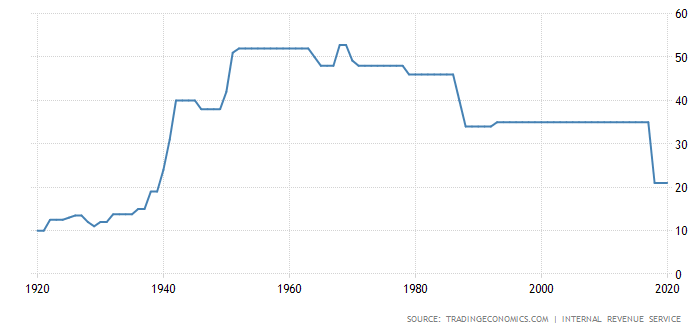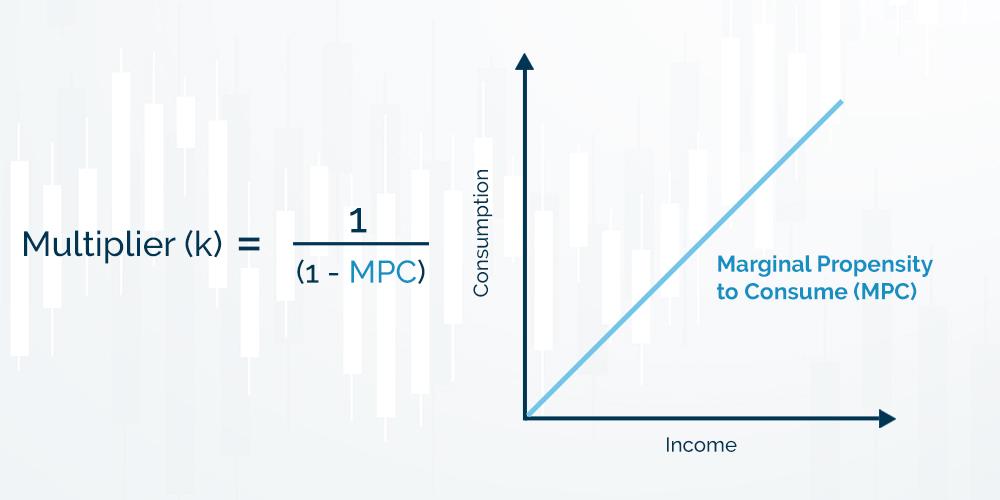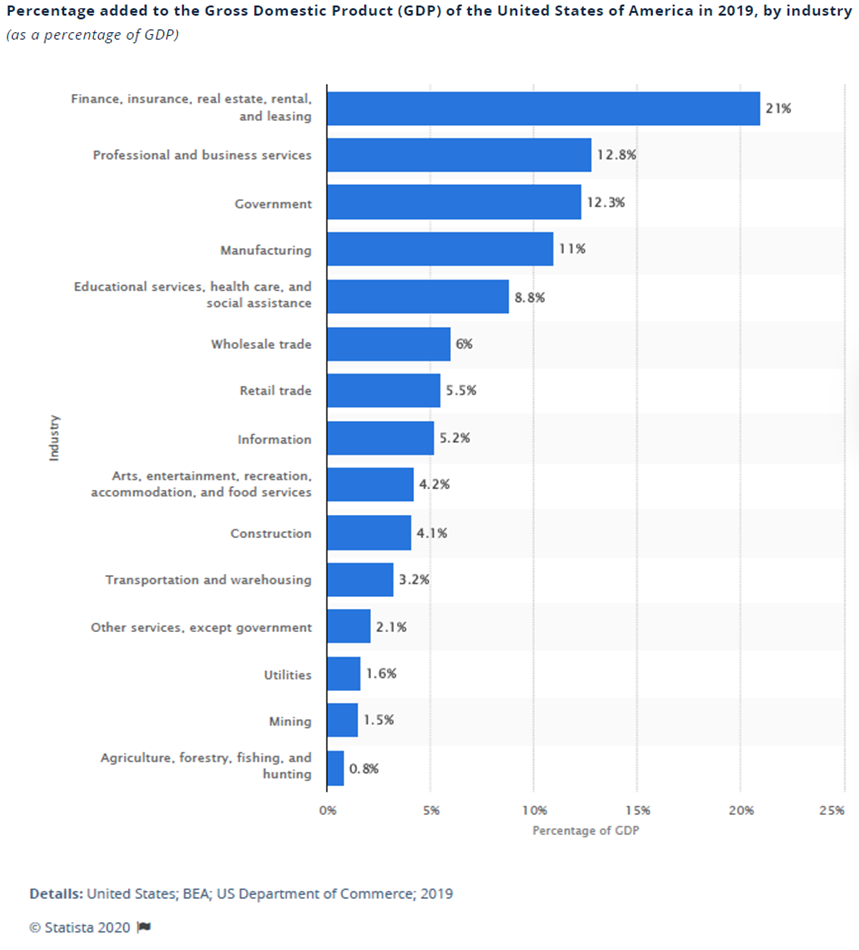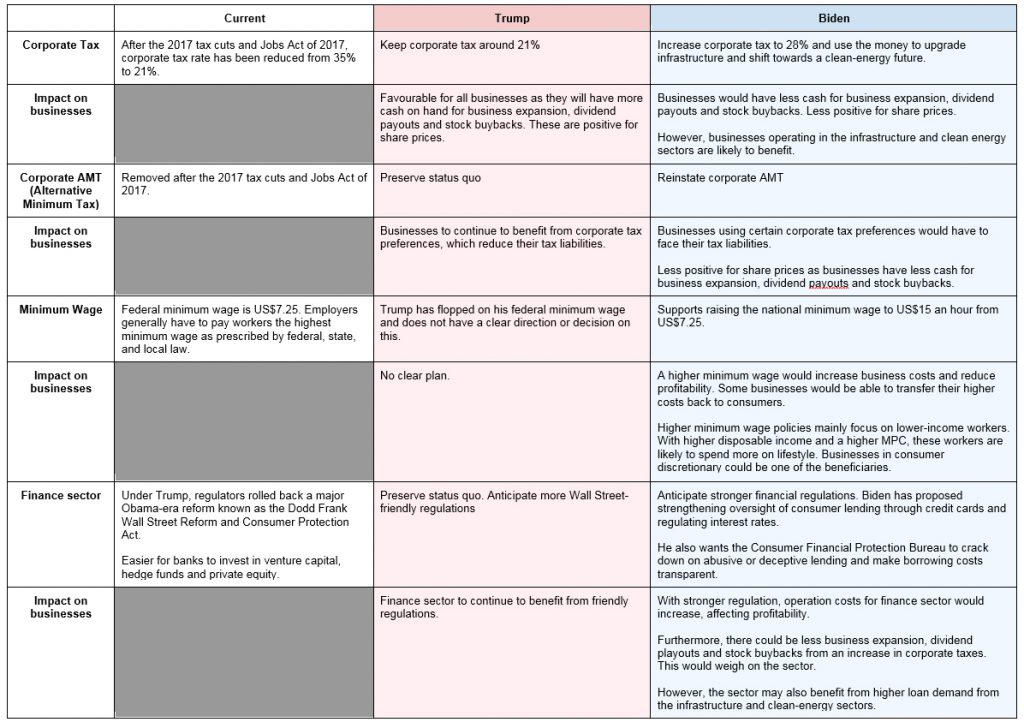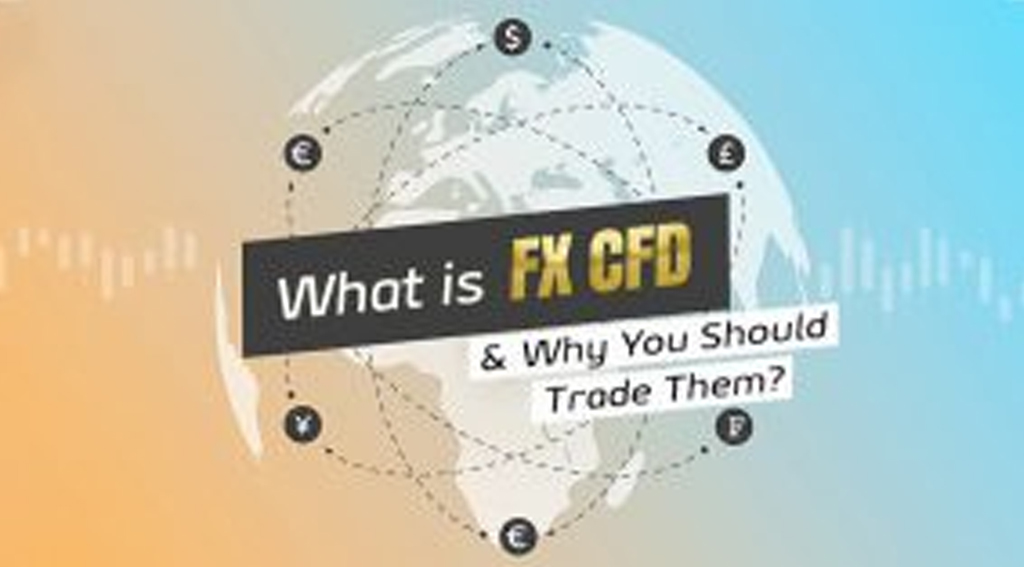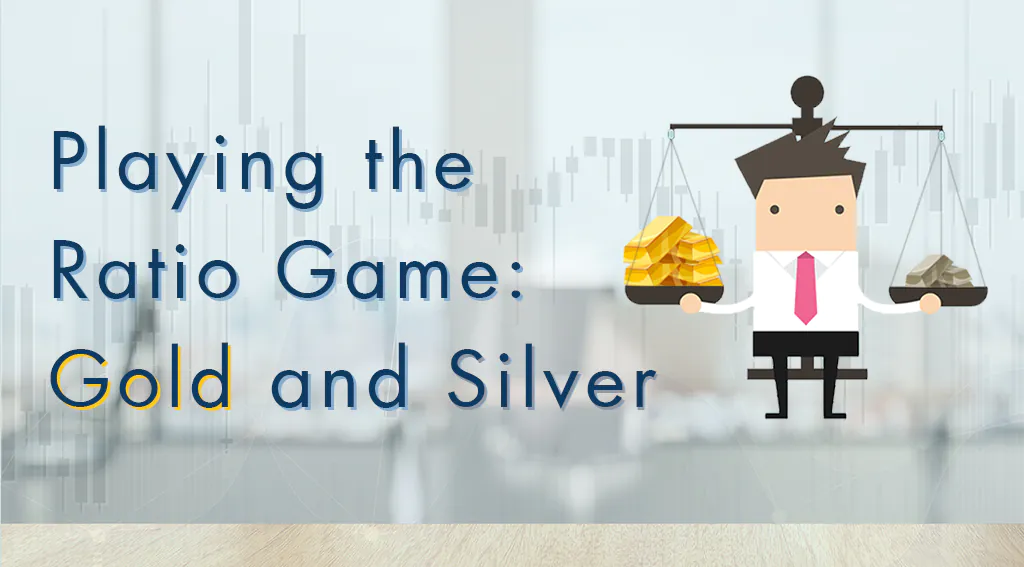US Election 2020: Impact of Tax Policies on Your Investments
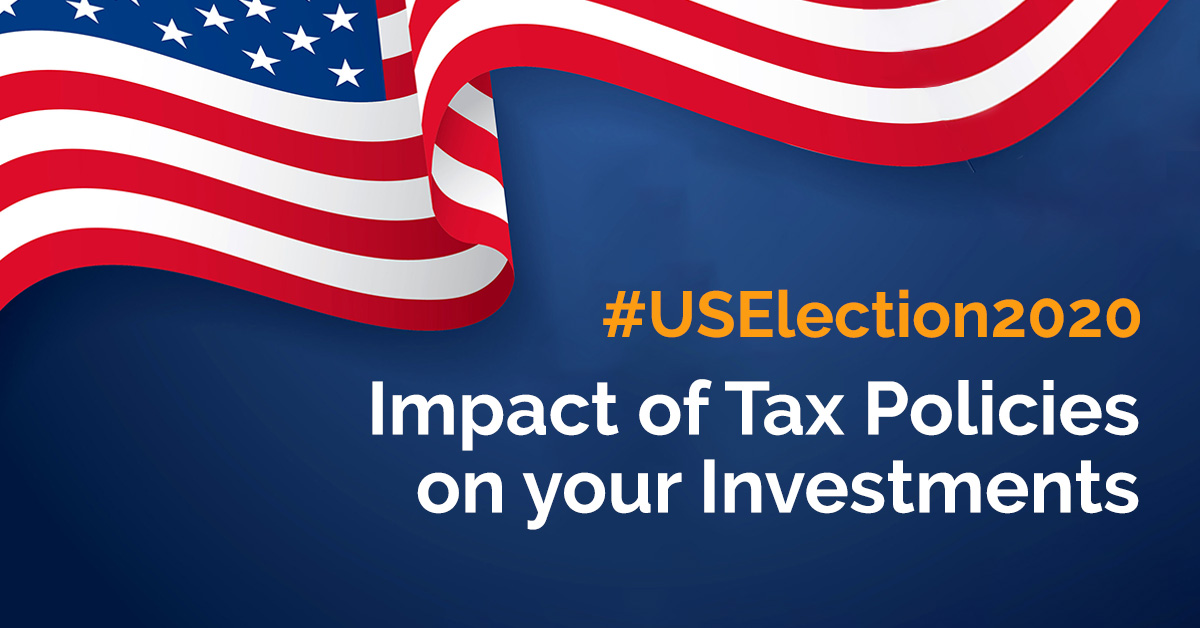
Published On: 8 October 2020 | 12:00 PM
Mike Ong, Senior Dealer
Mike is a member of the largest dealing team that specialises in Equities, ETFs, CFDs & Bonds, and manages >50,000 client accounts in Phillip Securities. He believes in investing long-term for passive income and evaluates stocks using fundamentals. He is currently the chief editor of the HQ education series that aims to equip clients with tools and skillsets to make better investing and trading decisions.
This article is part of the US Election series brought to you by POEMS. #USElection2020.
What this report is about:
- Biden has proposed higher corporate taxes while Trump says he will maintain low taxes
- A Trump win is potentially positive for markets given his loose monetary and corporate tax policies
- A Biden win is potentially positive for consumer discretionary, infrastructure and clean-energy sectors
- Whether Biden or Trump, gain exposure to selected investment themes via ETFs and CFDs
Did you know that the US presidential election outcome could have seismic effects on US foreign policy and global financial markets?
Each presidential candidate has his own political agenda, policy proposals and campaign promises. The policies proposed by the eventual winner could benefit certain industries and sectors while hurting others. Recall that after Donald Trump’s victory over Hilary Clinton in the 2016 election, big pharmaceutical stocks rallied as Clinton had threatened to curb drug- price increases. [1]
Elections this year will revolve around a central theme: Covid-19. The ongoing pandemic has affected the livelihood of millions of Americans and hit countless industries. As we approach D-Day, market volatility is expected to increase. In the lead-up to elections, the POEMS team is rolling out a series of articles on some of the political views of Biden and Trump and their potential impact on financial markets. In this article, we will be looking at their tax and financial-policy propositions.
Corporate Tax
Corporate tax levied on a company’s profit affects business costs. An increase in corporate tax rates will reduce the profits of businesses.
On the other hand, corporate income tax is the third-largest source of federal tax revenue in the US. This money can be redirected to the building of infrastructure or support of other public services. In return, businesses can benefit from the country’s infrastructure development or other public policies.
Corporate Alternative Minimum Tax (AMT)
Corporates are required to calculate their tax liabilities under two sets of rules: Regular Tax Liability and Tentative Alternative Minimum Tax (AMT). When their tentative AMT is higher than their regular tax, AMT is imposed. The purpose of AMT is to prevent companies from escaping their tax liabilities by using certain corporate tax preferences. The latter include research and experiment credits, work opportunity credits and welfare-to-work credits.
Minimum Wage
Minimum wage in the US is set by the US labour law as well as state and local laws. Employers generally have to pay workers the highest minimum wage prescribed by federal, state and local law. Since 2009, the federal minimum wage has remained at US$7.25 an hour.
Higher wages increase household disposable income, which generally encourages higher consumer spending. The injection of extra income that leads to more spending typically has multiplier effects on the economy.
How does one measure the multiplier effect? The general formula for calculating the multiplier uses marginal propensities:
1 / (1 – MPC)
Marginal propensity to consume (MPC) is the proportion of an increase in income that gets spent on consumption.
Figure 2: Marginal Propensity to Consume (MPC)
Low-income workers will most likely have a higher MPC, as most of their basic needs remain unsatisfied. As such, increments in their income tend to be spent on meeting those needs. All else being equal, raising the minimum wage will most likely result in higher consumer spending.
Finance Sector
The financial sector is a key pillar of the economy. Firms and institutions in this sector provide financial services to both commercial and retail clients. Categorised in this sector in the US are banks, investment companies, insurance companies and real-estate firms. A stable economy requires a healthy financial sector, as the sector provides loans for businesses to expand, grants mortgages to homebuyers and issues insurance policies to protect companies, people and assets. It also helps individuals build up savings for retirement and provides employment to millions of people. In 2019, this sector added 21% to the US Gross Domestic Product.
Figure 3: Industry contributions to US Gross Domestic Product (GDP) by percentage in 2019
Gain Exposure with ETFs and CFDs on POEMS
Source: POEMS US Election 2020 page
With higher market volatility expected towards Election Day, you can consider using CFDs to hedge your portfolio positions.
Contrary to popular opinion, Contracts for Differences (CFDs) are not just for technical traders. Long-term investors can utilise them to hedge against unforeseen events and uncertainties effectively.
World Indices CFDs and Commodity CFDs are hedging tools for equities amid rising uncertainty and volatility in markets. This is due to their correlations.
One can use CFDs as a hedge in the following two scenarios:
1) When the prices of your existing positions have already moved or are moving against you.
2) When you anticipate future gains in your existing positions to be marginal due to increasingly negative market sentiment.
For a detailed example of how to use CFDs for hedging, check out our example at the bottom of this article.
Before you decide, it is important to know which assets to use to hedge.
Assets that have a positive correlation with your positions are used as an opposing hedge (short). Assets with a negative correlation with your positions are used as a same-side hedge (long). Therefore, you need to select the right assets to hedge your existing position. However, do note that it is not possible to perform a perfect hedge due to correlational factors and positional sizes.
History doesn’t repeat itself, but it does rhyme.
Mark Twain
Thank you for following us so far! We sincerely hope that after reading the above, you will gain a better understanding of the policies of the US presidential candidates and their potential impact on financial markets.
Stay tuned for our next US Presidential Election series, which will feature our take on the technology sector!
Till next time, folks!
References
[1] https://www.businessinsider.com/stock-market-futures-election-2016-results-2016-11
[2] https://www.statista.com/statistics/248004/percentage-added-to-the-us-gdp-by-industry/
[3] https://www.taxpolicycenter.org/briefing-book/how-does-corporate-income-tax-work
More Articles
What is FX CFD & Why You Should Trade Them?
Before you plunge right into Forex (FX) CFD trading, please read this article to understand the basic fundamentals of Forex trading and how you can start trading Forex (FX) CFD with us.
Playing the Ratio Game: Gold and Silver
Gold price has surged to Multi-year high recently, generating massive interest in this investment amidst market uncertainties and low interest rates. Read on to find on about the Gold/Silver Ratio.
Understanding Contracts for Difference (CFD)
“What is CFD?” might be a question that has popped up into the minds of those that just recently got acquainted with the concept of investments.
Disclaimer
This material is provided to you for general information only and does not constitute a recommendation, an offer or solicitation to buy or sell the investment product mentioned. It does not have any regard to your specific investment objectives, financial situation or any of your particular needs. Accordingly, no warranty whatsoever is given and not liability whatsoever is accepted for any loss arising whether directly or indirectly as a result of your acting based on this information.
Investments are subject to investment risks. The risk of loss in leveraged trading can be substantial. You may sustain losses in excess of your initial funds and may be called upon to deposit additional margin funds at short notice. If the required funds are not provided within the prescribed time, your positions may be liquidated. The resulting deficits in your account are subject to penalty charges. The value of investments denominated in foreign currencies may diminish or increase due to changes in the rates of exchange. You should also be aware of the commissions and finance costs involved in trading leveraged products. This product may not be suitable for clients whose investment objective is preservation of capital and/or whose risk tolerance is low. Clients are advised to understand the nature and risks involved in margin trading.
You may wish to obtain advice from a qualified financial adviser, pursuant to a separate engagement, before making a commitment to purchase any of the investment products mentioned herein. In the event that you choose not to obtain advice from a qualified financial adviser, you should assess and consider whether the investment product is suitable for you before proceeding to invest and we do not offer any advice in this regard unless mandated to do so by way of a separate engagement. You are advised to read the trading account Terms & Conditions and Risk Disclosure Statement (available online at www.poems.com.sg) before trading in this product.
Any CFD offered is not approved or endorsed by the issuer or originator of the underlying securities and the issuer or originator is not privy to the CFD contract. This advertisement has not been reviewed by the Monetary Authority of Singapore (MAS).





